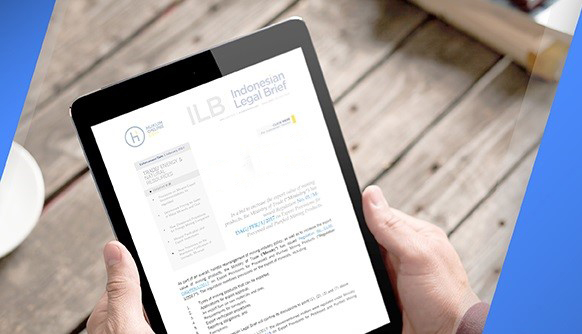
The Minister of National Development Planning/National Development Planning Agency (“Minister”) has introduced a new framework that specifically addresses the implementation of public-private partnership schemes for the procurement of infrastructure (“PPP”) through the issuance of Regulation No. 7 of 2023 (“Regulation 7/2023”), which has been in force since 29 September 2023. Regulation 7/2023 simultaneously repeals and replaces Regulation No. 4 of 2015, as amended by Regulation No. 2 of 2020 (“Regulation 2/2020”), which addressed similar matters.
In essence, Regulation 7/2023 features a more detailed set of arrangements that address the types of infrastructure that are eligible for procurement, as well as the overall implementation of PPP, as originally addressed under the previous framework of Regulation 2/2020. Furthermore, Regulation 7/2023 also introduces a new set of provisions that specifically address small-scale PPP and transfers of PPP.
In order to provide a general summary of the various new provisions that are set out under the framework of Regulation 7/2023, this edition of Indonesian Legal Brief will highlight the updated provisions on PPP. Our analysis has been divided up as follows:
Updated Infrastructure Types
The previous framework of Regulation 2/2020 stipulated 20 types of infrastructure that could be procured through PPP schemes, along with the applicable scope of projects that applied to each infrastructure type. While retaining the majority of the previous infrastructure types, Regulation 7/2023 has now adjusted the overall scopes of projects and has also introduced two new infrastructure types (i.e. industrial ecosystems and battery-powered electric motor vehicles). The following table highlights the scope of the adjustments that have now been introduced:

Implementation of PPP Through Business Entity Initiatives
Broadly speaking, Regulation 2/2020 divides the implementation of PPP into the following initiatives: 1) PPP through Government Contracting Agency (Penanggung Jawab Proyek Kerjasama – “PJPK”) initiatives; and 2) PPP through business entity initiatives. While no significant changes have been made in terms of the first category, Regulation 7/2023 has introduced comprehensive implementation procedures for the latter. Said implementation breaks down into three stages, as summarized in the following table:

In addition to the above matters, Regulation 7/2023 has also now introduced the application of PPP schemes with small-scale business entities (“Small-Scale PPP”) for infrastructure that fulfills the following criteria:
PJPK should assume responsibility for conducting analyses that address the above-listed criteria. Moreover, in terms of implementation, Small-Scale PPP should follow relatively similar procedures to those followed by PPP (i.e. may be initiated by PJPK and business entities), as comprehensively elaborated upon under Appendix I to Regulation 7/2023.
Transfers of PPP
Newly introduced under Regulation 7/2023, each type of PPP initiative can be transferred to another party, as required during certain stages of their implementation. Possible PPP transfers are detailed in the table below:

It should be noted that transfers that are completed during the transaction stage may only be carried out under the following conditions:
Source : hukumonline.com



National Economy
Regional Economy
National Economy
Regional Economy